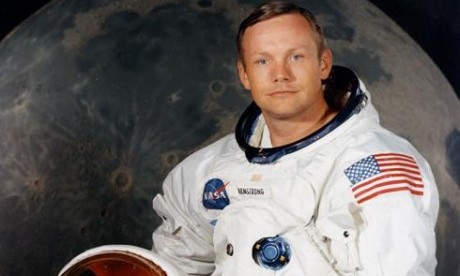The death of Neil Armstrong, the first man to walk on the moon, has prompted a bout of soul-searching about America’s national destiny as well as mourning for an icon of the 20th century.
As tributes continued to pour in on Sunday for the former astronaut who died aged 82 there were also expressions of regret that no human has been back to the moon since 1972, just three years after Armstrong set foot on it and gave his famous “giant leap for mankind” speech.
Elliot Pulham, chief executive of the Space Foundation, decried today’s lack of backing for America’s space agency Nasa, compared with the vast resources devoted to the moon landings programme in the 1960s.
“In this age of timid exploration goals and paltry Nasa budgets, Armstrong looms as a larger-than-life reminder of what our nation was once capable of,” he said. Pulham said the real life drama of Armstrong’s moon landing – watched by a fifth of the world’s population – was unlikely to be repeated now except fictionally in a summer blockbuster.
He said: “In an age when Hollywood and professional sports manufacture so-called ‘heroes’, Armstrong exemplified the right stuff. He was the real deal.”
Armstrong died on Saturday following heart problems that ensued after he underwent bypass surgery near his Ohio home earlier this month. His recovery had been thought to be going well, and his death came as a surprise to many.
A statement released by his family gave few details, but spoke of a “reluctant American hero” and said to those who might want to pay tribute to him: “Honour his example of service, accomplishment and modesty, and the next time you walk outside on a clear night and see the moon smiling down at you, think of Neil Armstrong and give him a wink.” Read more
Sources
- The Guardian
- Image: USA Today
News category: Features.




